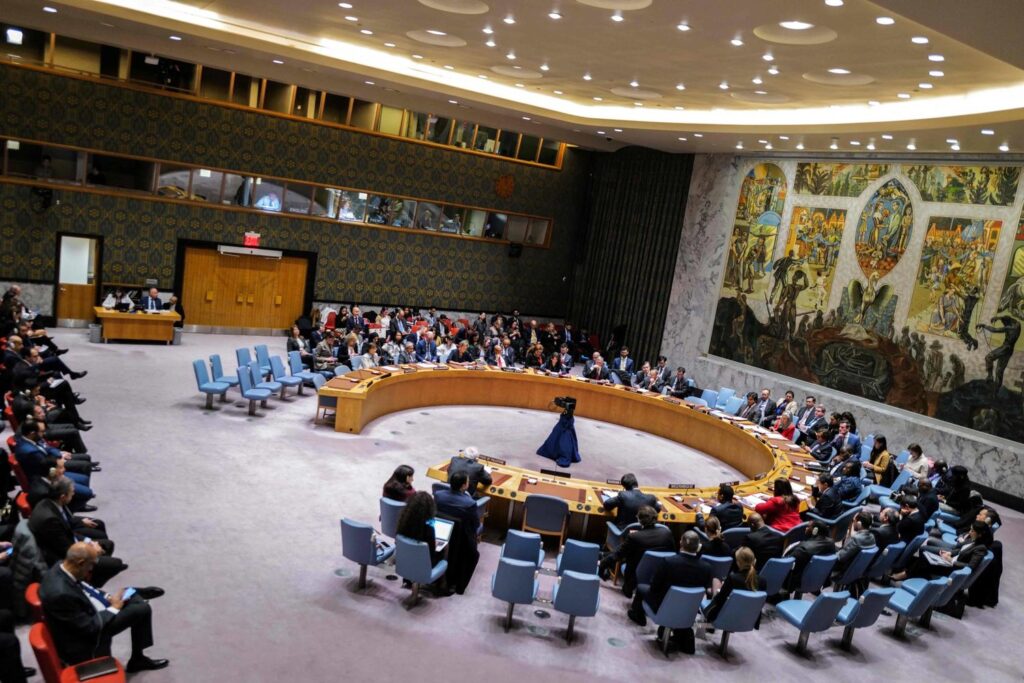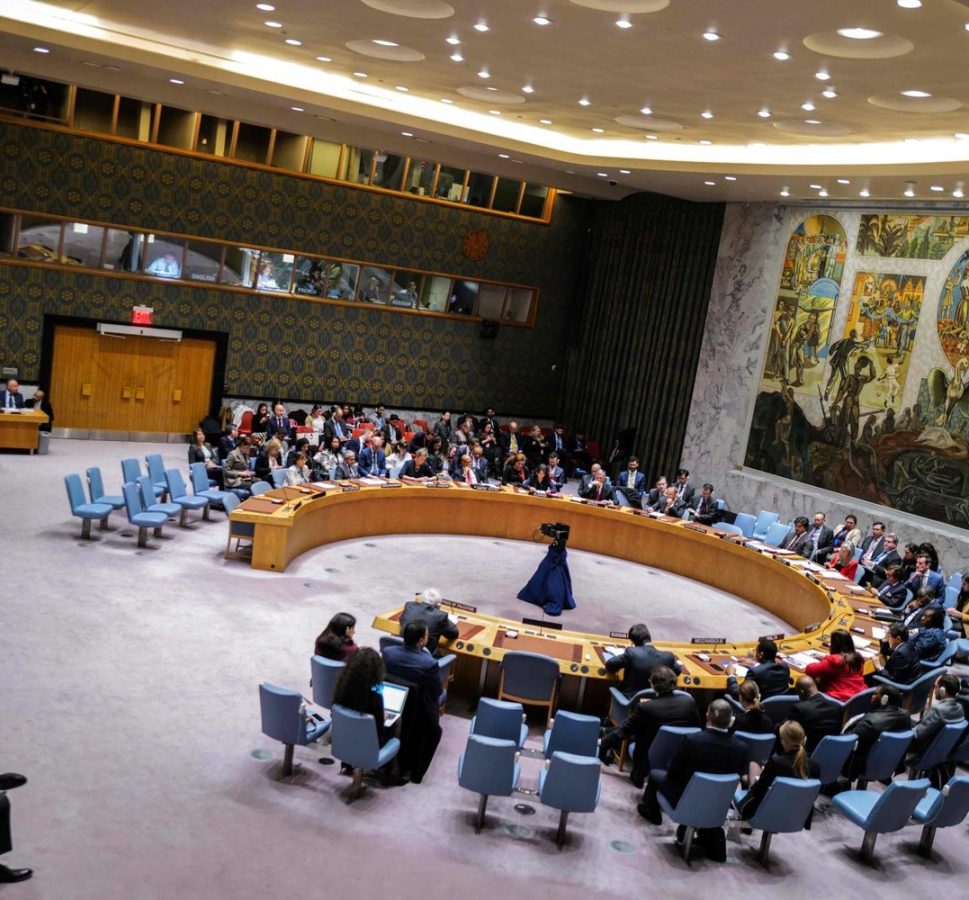
Eyeing a prospective Israel-Hamas truce deal in Qatar, the US draft resolution does not explicitly demand a ceasefire now.
The United States has circulated a draft United Nations Security Council resolution calling for an “immediate ceasefire tied to the release of hostages” in Gaza, according to US Secretary of State Antony Blinken who is on a tour of the Middle East.
Israel’s key political and military backer has repeatedly vetoed previous UNSC votes on ending the nearly six-month war, objecting as recently as February to the use of the term “immediate” in a draft submitted by Algeria.
In recent weeks, however, it has upped the pressure on Israel while insisting that Hamas fighters must immediately release the captives seized during its October 7 attacks on Israel.
“Well, in fact, we actually have a resolution that we put forward right now that’s before the United Nations Security Council that does call for an immediate ceasefire tied to the release of hostages, and we hope very much that countries will support that,” Blinken said in Saudi Arabia.
“I think that would send a strong message, a strong signal,” he told Saudi media outlet Al Hadath on Wednesday.
“Of course, we stand with Israel and its right to defend itself … but at the same time, it’s imperative that the civilians who are in harm’s way and who are suffering so terribly – that we focus on them, that we make them a priority, protecting the civilians, getting them humanitarian assistance,” Blinken said.
A copy of the new draft resolution, obtained by Al Jazeera, reads: “The Security Council determines the imperative of an immediate and sustained ceasefire to protect civilians on all sides, allow for the delivery of essential humanitarian assistance, and alleviate humanitarian suffering and towards that end unequivocally supports ongoing international diplomatic efforts to secure such a ceasefire in connection with the release of all remaining hostages.”
Al Jazeera’s Diplomatic Editor James Bays said while the development “sounds very important”, the “exact language” of the resolution is crucial, adding that what the US was actually demanding was ambiguous.
“It’s certainly the strongest language yet, but is it what the rest of the Security Council wants in terms of a demand for an immediate ceasefire? Or is it just a resolution where the Security Council would say an immediate ceasefire is something that’s very important?” he said.
No vote has yet been scheduled on this text.
In February, the US was the only country to vote against the draft – its third such veto – while the United Kingdom abstained.
For a UNSC resolution to be adopted, it requires at least nine votes in favour and no vetoes by any of the five permanent members: the US, UK, France, Russia or China.
Linda Thomas-Greenfield, the US ambassador to the UN, said then that her country was vetoing the resolution over concerns it would jeopardise talks between the US, Egypt, Israel and Qatar that were seeking to broker a pause in the war and the release of captives held in Gaza.
Talks for a ceasefire deal were continuing in Qatar this week following failed attempts to secure an agreement before the start of the Muslim holy month of Ramadan.
Qatari officials said they were “cautiously optimistic” after discussions with Israel’s intelligence chief in Doha, although Qatari Foreign Ministry spokesperson Majed al-Ansari said on Tuesday that an Israeli ground operation in Rafah in southern Gaza would set back any talks.
Bays also said this was “not the only draft resolution that’s floating around”.
“The language of other resolutions that the US has vetoed have demanded a ceasefire. This one uses the words, ‘determines the imperative’, so it says it is important that there is a ceasefire. It is not really demanding one now,” he added.
“My suspicion is that what the US is trying to do is have this resolution ready while the talks continue in Doha – the idea being that you get some sort of deal in Doha for a ceasefire and a release of the captives, and then you pass this resolution in the Security Council. That, I think, is the timing but we’ll need more clarity.”
Blinken is on his sixth tour to the Middle East since Israel’s war on Gaza began. He already met Saudi Foreign Minister Prince Faisal bin Farhan and Crown Prince Mohammed bin Salman in Saudi Arabia.
On Thursday, he is due to meet foreign ministers from Egypt, Qatar and Jordan in Cairo, as well as the Emirati international cooperation minister and the general secretary of the Palestine Liberation Organization’s (PLO) executive committee, according to the Egyptian foreign ministry.
Blinken is expected in Israel on Friday.






